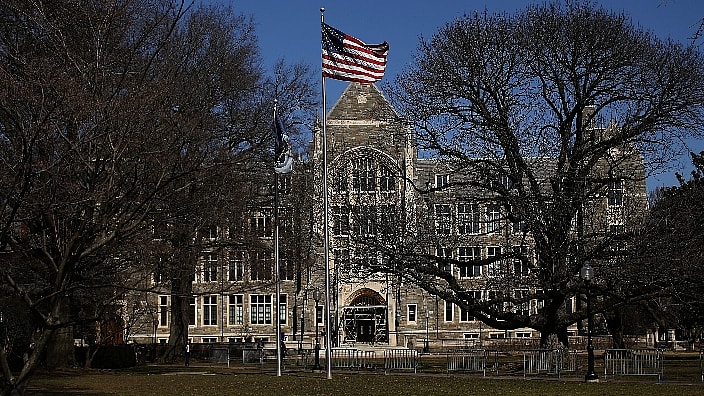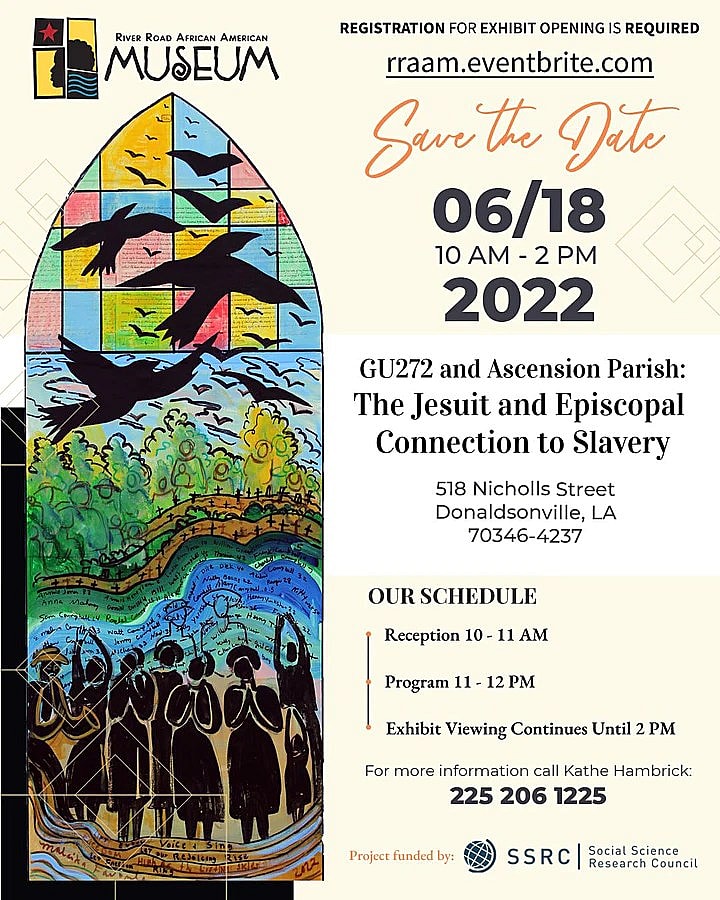Georgetown University’s Jesuit founders sold nearly 300 enslaved people to Louisiana sugarcane planters in 1838 to pay off the university’s debts. A former Episcopal church is now home to a permanent exhibit that tells this story.
“GU272 and Ascension Parish: The Jesuit and Episcopal Connection to Slavery” is a project of the River Road African American Museum located in Donaldsonville, Louisiana, according to The Advocate. It opens on the weekend of Juneteenth, the federal holiday that recognizes the date (June 19) in 1865 that Union Army General Gordon Granger informed enslaved people in Texas that they were free.

“It’s dedicated to the enslaved people who were brought here and their descendants,” said Kathe Hambrick, curator of the exhibit.
The title references the 272 enslaved people who the university sold to the Louisiana sugarcane planters. According to the report, the Jesuit order formally apologized to the descendants of the enslaved people in 2017.

The project was made possible by grants from the non-profit American Slavery’s Legacy Across Space and Time, as well as the New Orleans Jazz National Historical Park of the National Park Service. Historian and genealogist Karran Royal of New Orleans served as the primary researcher for the new exhibit. “Working on the project helped me uncover so many details about these families,” Royal said, The Advocate reports.
Descendants of the enslaved, as well as members of the general public, participated in a series of genealogy workshops to educate them about the GU272.
The former Episcopal church that serves as a home for the exhibit was built in 1873 on land donated by one of the two sugarcane planters, Henry Johnson. He was Louisiana governor from 1824 to 1828. Johnson also co-founded the Episcopal Church of Ascension in Donaldsonville.
Hambrick is the founder of the River Road African American Museum located on Nicholls Street. The through-provoking exhibit formally opens June 18. An early morning reception is planned, then an afternoon program follows, including virtual access to the Georgetown Slavery Archives, according to the report.
Registration is required to attend the inaugural reception. Afterward, the exhibit will be available for viewing by appointment only by registering online at africanamericanmuseum.org or calling 225 474-5553.
TheGrio is FREE on your TV via Apple TV, Amazon Fire, Roku, and Android TV. Please download theGrio mobile apps today!

